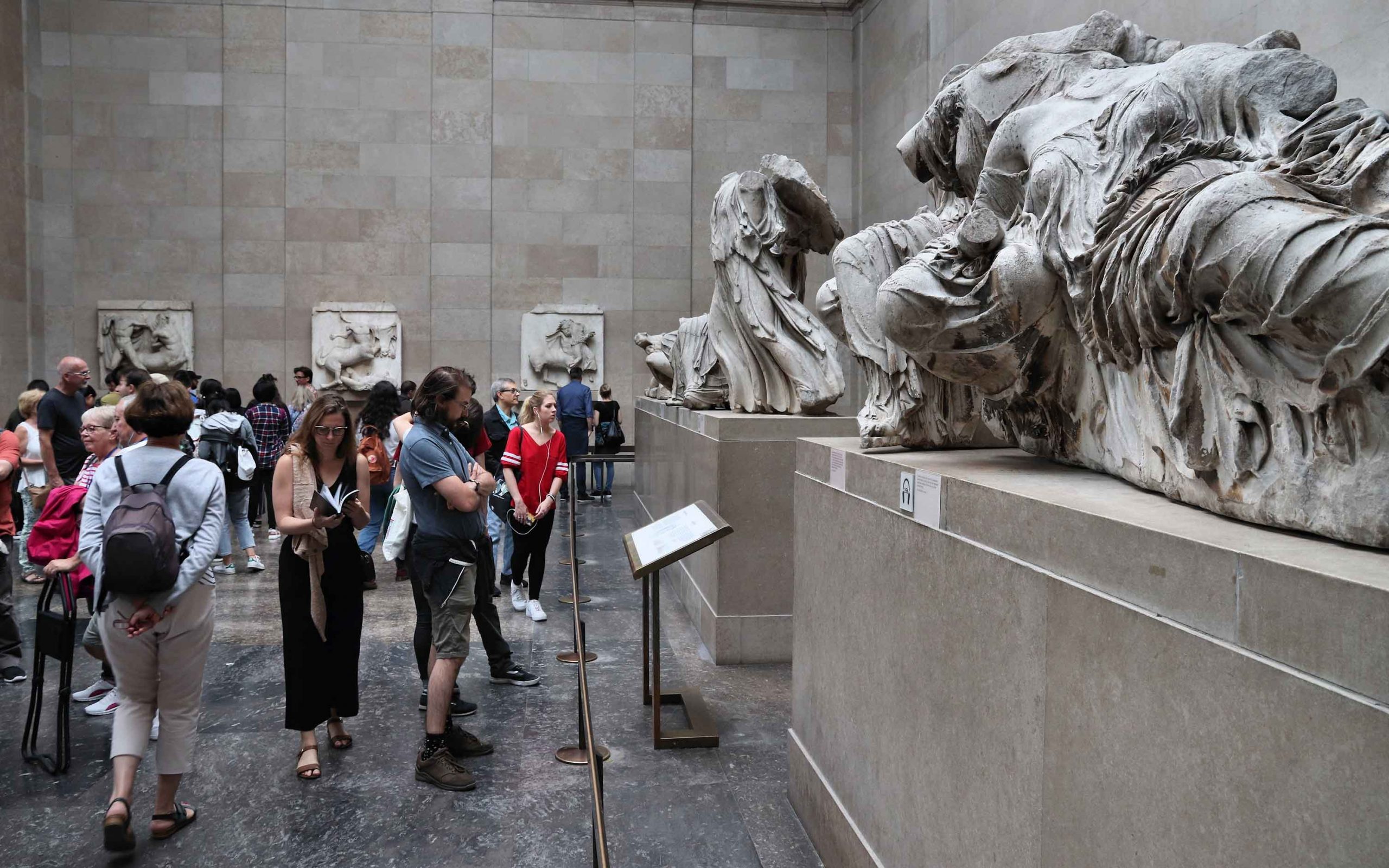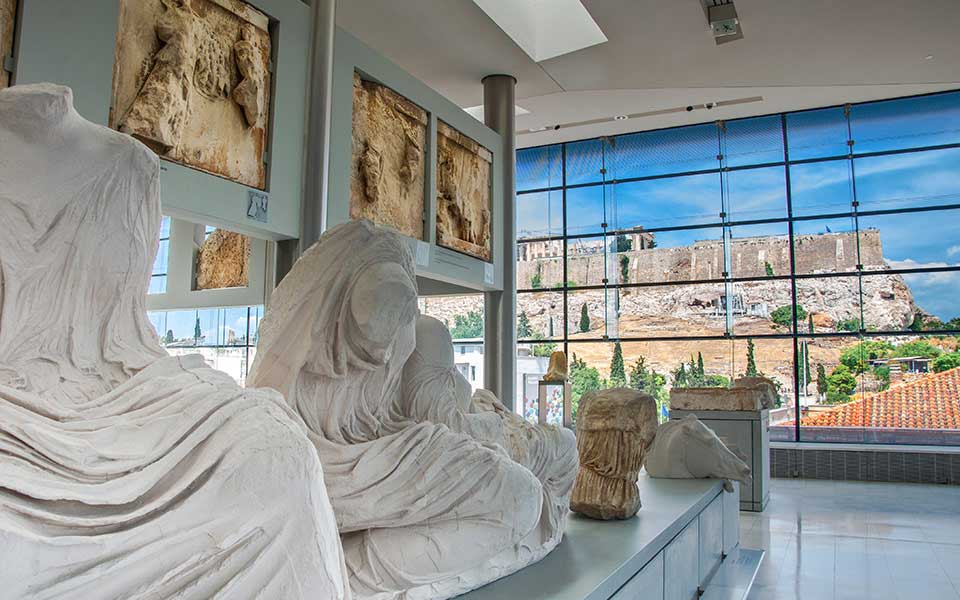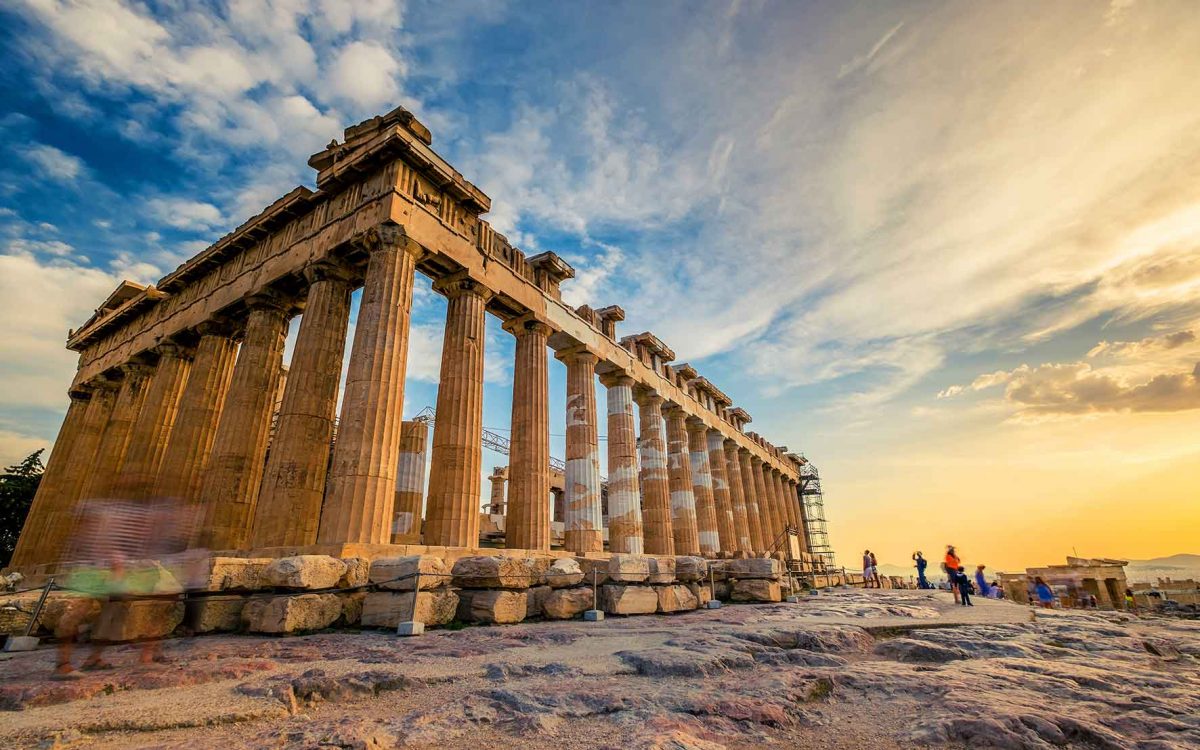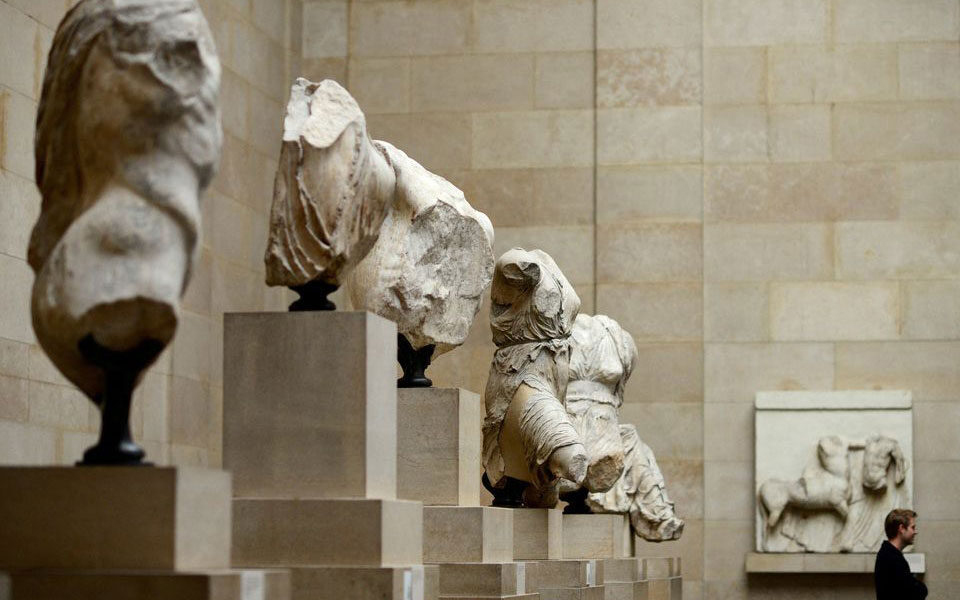“I am baffled, as are most people,” a leading member of the British Museum’s Board of Trustees told Kathimerini in confidence a day after the the country’s prime minister, Rishi Sunak, abruptly canceled a meeting with Greek Premier Kyriakos Mitsotakis, a decision prompted by the ongoing controversy over the 2,500-year-old Parthenon Sculptures that cast a pall over relations between the two countries.
Just a few days earlier, however, there was nothing gloomy about the mood in the run-up to Mitsotakis’ visit to London. Members of the board, which is responsible for safeguarding the British Museum’s collections, and dozens of its guests enjoyed the first trustees’ dinner ever to be hosted in the Duveen Gallery, where the Greek marbles are displayed, and listened to George Osbourne, the museum’s president and former minister with Sunak’s Conservative party, outline his vision of a possible deal with Greece. He spoke of “an agreement that enables these great sculptures to be seen in Athens, as well as London” and “allows other treasures from Greece, some that have never left those shores, to be seen here at the British Museum.”

© Shutterstock
It is not surprising, therefore, that anyone who heard Osbourne’s speech or is following the negotiations between the sides should be baffled by recent developments, which have brought any talks about the marbles between Athens and London to a halt, at least for the time being, despite the progress made in the past year, or so and more recent hints of a possible deal. But will this diplomatic incident actually hinder the ongoing discussions between the Greek side and the British Museum?
“Discussions with Greece about a ‘Parthenon Partnership’ are ongoing and constructive. We believe that this kind of long-term partnership would strike the right balance between sharing our greatest objects with audiences around the world, and maintaining the integrity of the incredible collection we hold at the museum,” said a spokesperson for the British Museum, speaking to Kathimerini on condition of anonymity, reiterating the institution’s firm stance on the issue, even after the recent events.

© Shutterstock
Kathimerini also reached out to the Parthenon Project for comment on Monday’s developments, with a spokesperson for the nongovernmental organization, which promotes the reunification of the sculptures on the basis of a cultural exchange, appearing critical of Sunak’s stance toward Mitsotakis. “It’s a shame the British prime minister feels he can’t discuss the subject of the Elgin Marbles with the Greek prime minister, especially given how much both countries stand to gain from a sensible resolution of this matter,” said the spokesperson, who asked not to be named, while reiterating the Parthenon Project’s position that Athens and London can agree to disagree on the issue of ownership of the marbles and proceed with an agreement.
The organization is also championing the creation of a bilateral foundation that would be responsible for educational cooperation between the two countries and for raising funds for a revamp of the Duveen Gallery. It would also fund the new wing of the National Archaeological Museum in Athens, sources at the Parthenon Project told Kathimerini. The same sources were reserved about how discussions between the two sides on the matter of the sculptures may proceed, with the general consensus being that it will take some time for the atmosphere to calm down again.

© Shutterstock
But what is this deal that everyone seems to be in favor of, yet remains so elusive? Osbourne has presented the broad strokes at several public forums. At the most recent, the trustees’ dinner, he spoke of an agreement that would allow cultural exchanges with Greece and outlined the legal aspects of such an arrangement, saying that it would be “a partnership with our Greek friends that requires no one to relinquish their claims, asks for no changes to laws which are not ours to write, but which finds a practical, pragmatic and rational way forward.”
What Osbourne means is that this “hybrid” deal, as it has been described, would respect the red lines laid down by both sides with regard to the extremely serious and thorny matter of ownership. For its part, Greece cannot accept any form of “loan” of the sculptures as this would mean it conceding British ownership of them, while the British Museum, for its part, does not want the departure of the marbles to look like a permanent removal from its collection, as this would violate the law (from 1963) governing the institution’s operation. This is why the British side insists on underscoring that there will be no changes to the legislation to facilitate an agreement with Greece.
At the practical level, nothing much has changed in terms of the essential controversy over the marbles, as the question of ownership continues to be contested by both sides. The legal teams working on the issue, therefore, are looking for a win-win formula. Even so, some kind of compromise will be essential and would require the support of both governments and societies. “We may well not succeed. But we think it’s worth trying,” Osbourne said at the trustees’ dinner.
This article was previously published in ekathimerini.com.












